#Comte de Saint-Germain
Explore tagged Tumblr posts
Text
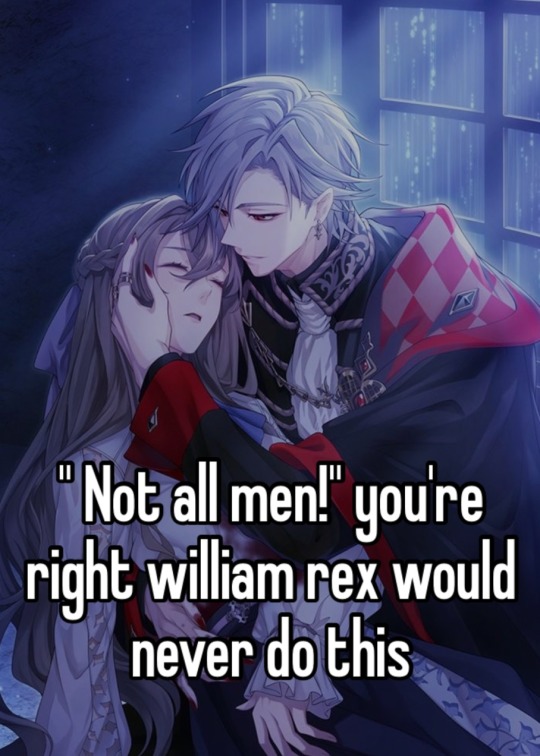
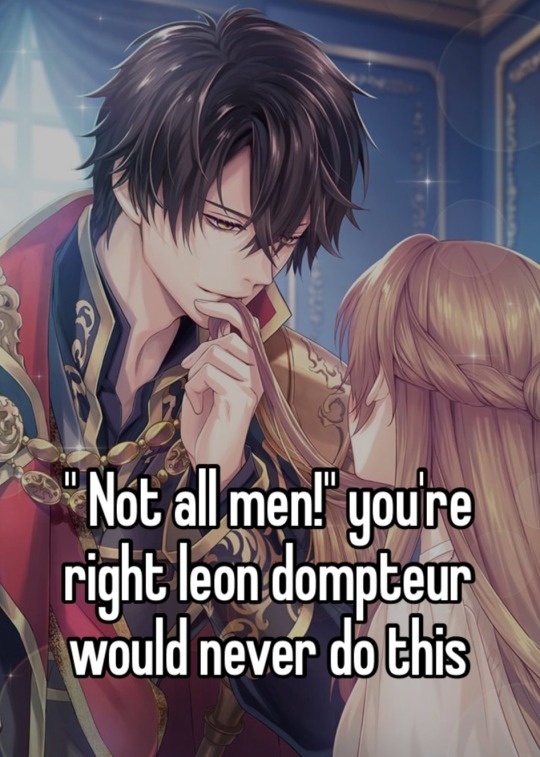
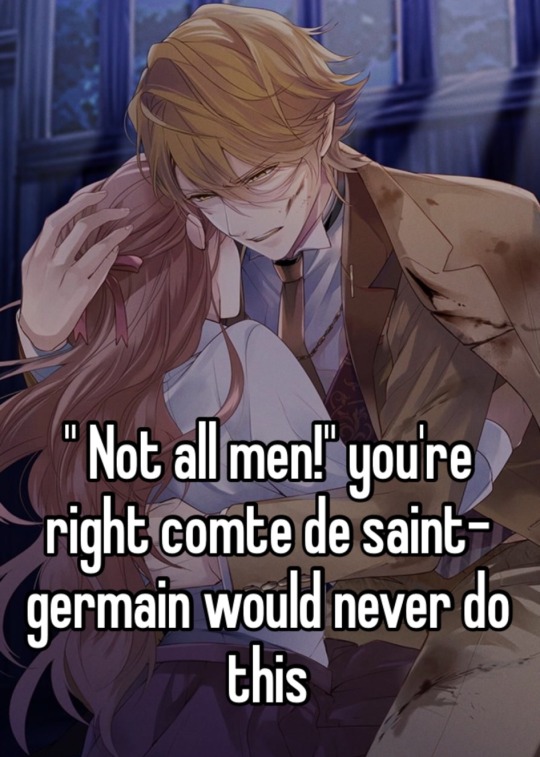
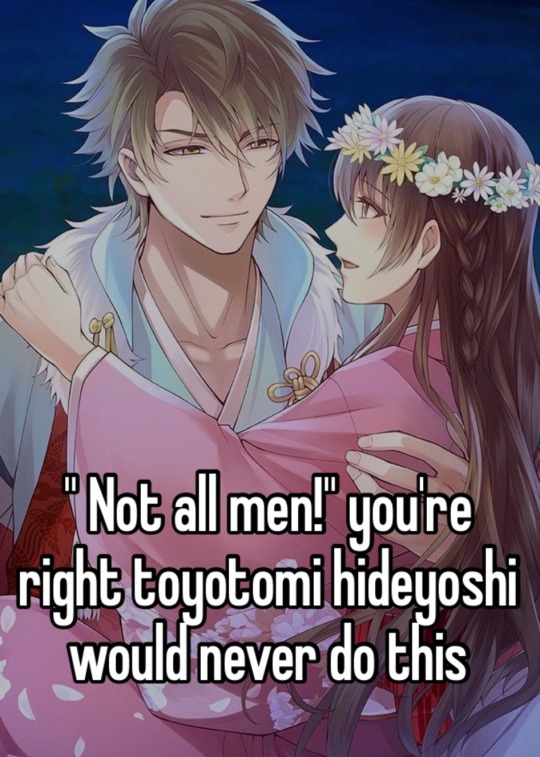
I love men these type of men
#cybird ikemen#ikemen prince#ikepri#ikemen villains#ikemen villians#ikevil#ikemen vampire#ikevamp#ikemen sengoku#ikesen#william rex#ikemen villains william#ikevil william#leon dompteur#ikemen prince leon#ikepri leon#comte de saint germain#ikemen vampire comte#ikevamp comte#toyotomi hideyoshi#ikemen sengoku hideyoshi#ikesen hideyoshi#ikemen memes#ikemen prince memes#ikepri memes#ikemen villains memes#Ikevil memes#ikemen vampire memes#ikevamp memes#ikesen memes
415 notes
·
View notes
Text

He’s the teacher bc he has phd in cuntology
205 notes
·
View notes
Text

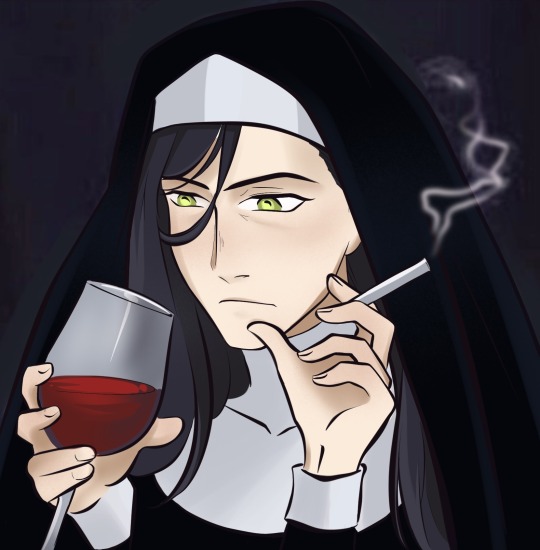
On April 15 I’ve sent my friend this meme as a perfect description of Olivier. Yesterday I found vol 11 omake with Sister Olivier, and then my hand just slipped
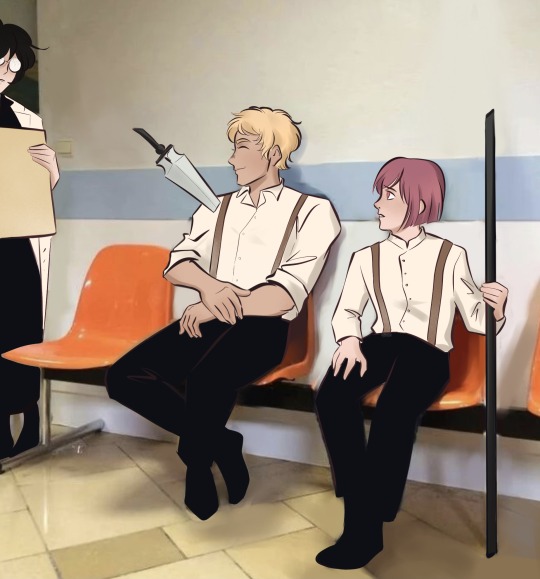
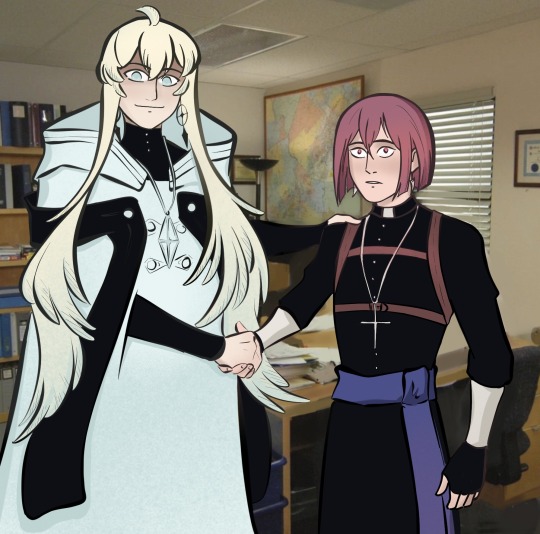
Also now I have some Chasseurs memes (and, apparently, a gift of prophecy) (also the first time I draw Charles is for office meme)
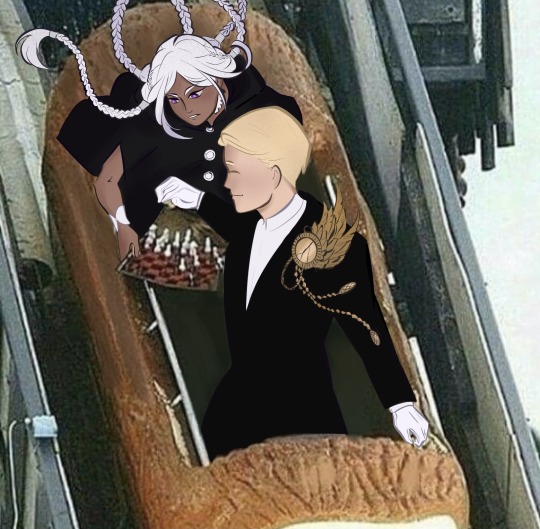
Bonus inspired by second omake: Machina and Teacher being Machina and Teacher
#Vanitas no carte#Vnc#vnc olivier#olivier of obsidian#vnc roland#roland fortis#anc astolfo#astolfo granatum#vnc charles#vnc mira#vnc marquis machina#vnc machina#vnc teacher#comte de saint germain#vnc fanart#the case study of vanitas#memoir of vanitas#mochizuki jun#artists on tumblr#I don’t have serious content today#So have this#lynn lyrae art
493 notes
·
View notes
Text
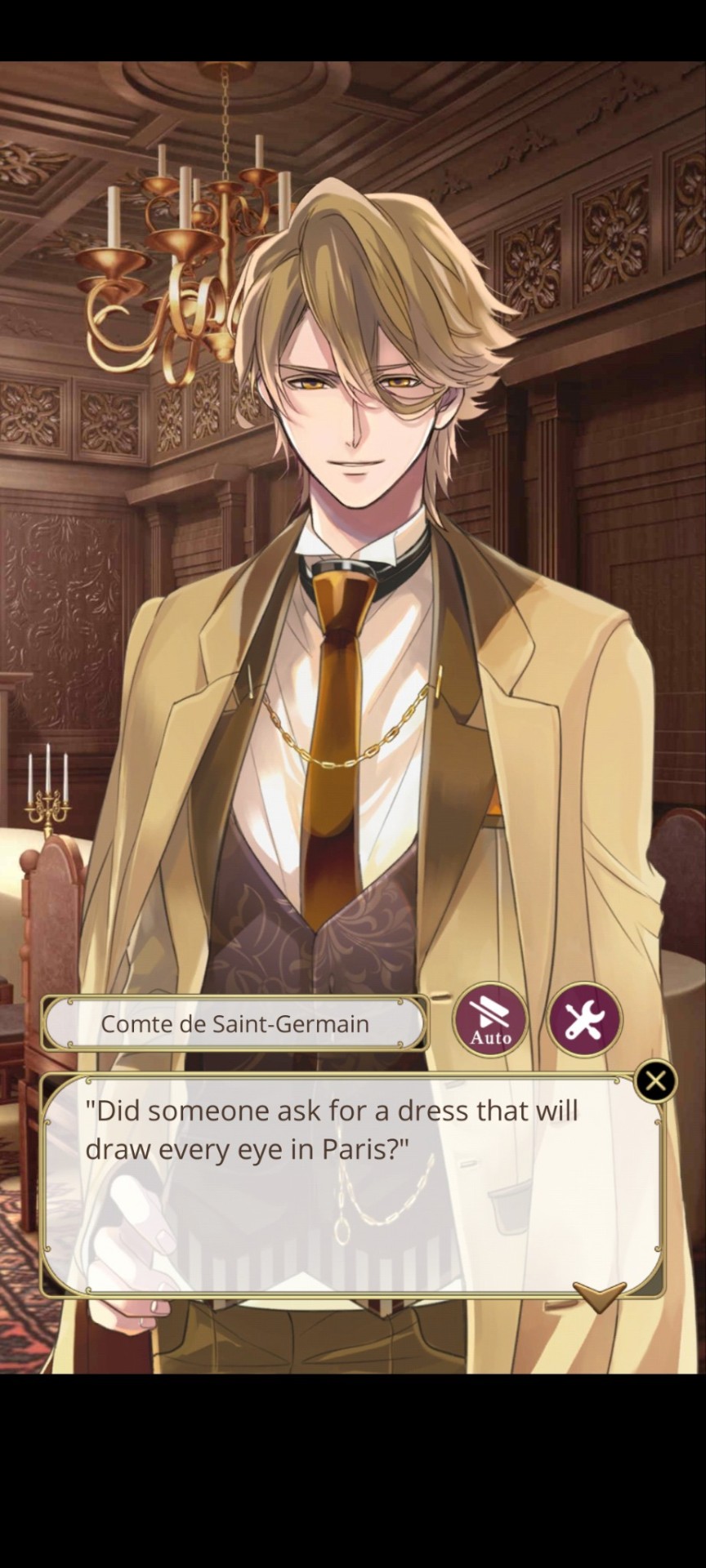
I love how, no matter where he may be in the mansion, the mere mention of the word "dress" would instantly summon le Comte. Like... Mitsuki, next time you get kidnap, just say that you need a new dress, it will make le Comte pop out right away, whenever wherever !
#le comte and his love for dresses and spoiling people#ikemen vampire#ikevamp#cybird#cybird ikemen#cybird otome#comte de saint germain#ikevamp comte
259 notes
·
View notes
Text


Try This On For Size
Words: 2729 CW: Semi-Public Sex, Vaginal Sex, Voyeurism?, Mirror Sex, Creampie, Vaginal Fingering Pairing: Comte de Saint-Germain / Female-Bodied Reader Prompt(s): Fitting Room, Let Them Play Dress-Up With You
Notes: I cranked out another one at work tonight. I'm feeling even less confident with this one than I was with the other, but.. I hope it still makes sense.
Crossposted on AO3 here.
For @xxsycamore's event, Sexy Ikemen Summer!

The sticky summer heat of the French countryside was beginning to get to you. No amount of fanning yourself or loosening your collar was cutting it.
Of all the things you could be missing from the modern era, air conditioning was not expected to be the crux of all of your issues.
Just as you feared you would begin to melt into the parquet flooring, a cool hand brushed against the back of your neck. “Are you okay, ma chérie? You seem a little warm.” His voice was soothing, but tinged with concern.
“I’m alright,” you assured him with a content sigh, leaning back into his touch. “It’s just hotter than I’m used to.”
Comte’s hands dropped to your shoulders and he began to massage them. He pressed a kiss to the crown of your head as the tension left your body. “You’ve been working hard lately. I think it’s time you take a break.”
“There’s too much to do for that,” You protested. “Sebas needs help with dinner, and we haven’t even begun cleaning up the book fort Leonardo created in the library.”
Comte hummed, one of his hands gently caressing the side of your neck. “Should I give it as an order from your employer, then? If a heartfelt plea from your partner isn’t enough.” He moved to kiss your neck under your ear. “Please, mon amour. It wouldn’t do to have you suffer a heatstroke simply because you’re too stubborn to know when to take a break.” His lips moved towards your shoulder, teasing but affectionate. His arms moved to your waist, pulling you back into his embrace. He rested his head on your shoulder and held you close.
You leaned into him, your head draped over his other shoulder. Unlike the stifling heat of the outdoors, Comte’s warmth was comforting and welcome. He nuzzled into the joint between your neck and shoulder. “Let me spoil you today,” he said, kissing your neck again.
“You spoil me every day, Abel,” you sighed, relaxing further into your partner. He was going to win this and you both knew it; it was just a matter of how long it took you to give in.
“And yet, somehow, I’m still not satisfied that it’s enough. You deserve more, chérie. You deserve the world, and you will get it if I have anything to say about it.” His arms tightened around your midsection, pulling you even closer.
A cool, inviting breeze suddenly blew through the open window. The air rushed along your face and tousled your bangs. Even nature herself was trying to tempt you. With another sigh, you gave in. “Fine. But you have to let me get up on time tomorrow, okay? I don’t want to leave Sebas waiting again like the last time you took me out for the day.”
The vampire chuckled into your neck, the reverberations rumbling through your own body due to the proximity. “I seem to recall you left my bed quite satisfied that morning.”
You flushed at the memory. “I certainly was,” you agreed. “Until Sebas abused my forehead after breakfast. I had a bruise for a week.”
“But it was worth it, non?” He looked up at you from his position on your shoulder. Comte’s golden eyes twinkled with amusement, but they were tinged with a subtle heat. His hands drifted slowly down your abdomen, his gaze never leaving yours. He offered you a coy smile.
You groaned. “It’s too hot, Abel,” you protested. “I will genuinely either melt into a puddle or catch on fire if you continue that line of thought right now.”
“Alright, alright,” he relented, stepping back from you with a light chuckle and holding up his hands in defeat. “Let’s get you cooled off.”
As it turns out, Comte’s idea of “cooling off” was taking a carriage into town and going clothes shopping. For you, of course. His reasoning was that your clothes were heavier than you were accustomed to in your time, so lighter fabric would help fend off the oppressive French sun. Comte’s logic was sound, but you were quite sure he was just fishing for an excuse to buy you even more dresses that you would only wear once.
As the carriage stopped, he stepped out first, offering you his hand. Taking it, he kissed the back of it before tucking your arm into his. The two of you walked leisurely in the direction of his favorite boutique, the one the both of you frequented. The staff immediately recognized the both of you (you were pretty certain that Comte’s patronage alone could keep this store in business for centuries to come, and potentially push France into the forefront of the modern economy) and ushered you into a large fitting room in the back of the building.
“How can we be of service on this day, Monsieur le Comte?”
He looked around the room briefly. “My partner is in need of some lighter summer clothes. The heat is getting to her,” he said, brushing his knuckles against your cheek with affection. You hadn’t really considered it before today, but the dress you were wearing was made of a heavier material that was more suited for the later part of the year. Maybe a couple of thinner summer dresses would be a good idea - you just hoped you could keep your darling Comte from purchasing the entire store this time.
The shop worker nodded in agreement. “The Madame’s dress is much better for the cooler months. Yes, I will bring you some of our best. Un moment, s'il vous plaît,” they said, stepping out to rifle through a few clothing racks.
You looked around the room. Not much had changed from the last time you were here, except now they had frilly sun hats and sunglasses on display alongside the jewelry and shoes.
“Has anything caught your eye, ma chérie?” Comte asked, tilting your chin up to look at him.
“Aside from you, you mean?” You ask with a smile. He responds with a chuckle and a kiss to the forehead.
“You are so.. Séduisant, mon amour,” Comte murmured, amused. “What am I going to do with you?”
“Many things, I’d imagine,” you said sweetly. “After all, eternity is a long time.”
Before Comte could reply, the shop attendant returned with a large bundle of fabric bunched in her arms. “I selected a few similar to what you’ve purchased for le Comtesse before, along with a couple of other styles I’m sure would look lovely on her.” She smiled at you.
“I truly think she could make anything look amazing. Merci beaucoup, mademoiselle,” Comte replied with a cordial smile. “We will take it from here.”
The attendant curtsied on her way out of the fitting room. “If you have need of anything else, please just let us know.”
Once you were alone, Comte sat on the ottoman in the room and grinned cheekily. “Strip.”
Your cheeks bloomed a dark pink. “Don’t say it like that!” You hissed, untying the ribbon at your neck at his request anyway. His laughter filled the room.
You tried on several outfits that day; all of which were far lighter material than what you had on. They were high-quality, lightweight cotton - and definitely outside of your normal budget. Not that Comte cared about price. If you expressed even the slightest desire for something, the vampire would have dozens of the item in question waiting for you within a day, regardless of practicality or expense. One time, you had been playing with Lumière and commented on how cute he was, and the next day you woke up to an entire litter of kittens in your room, courtesy of Comte. You ended up rehoming all but one of them - a little black thing you had named Minerva. She was probably sunning herself in the window right about now, absorbing all the sun she could. Disgusting.
Comte gave feedback on all of them, but he seemed pleased with every dress you tried on. He chose accessories and shoes for everything you tried on. While le Comte de Saint-Germain may not be the most fashionable of individuals, he could at least pick out matching shoes and jewelry.
Throughout the fittings, Comte’s eyes only left your figure a handful of times, just long enough to grab a pair of shoes or another accessory. The rapt attention from your lover would have made you feel self-conscious if it weren’t so endearing. Your trained eye could tell that Comte grew somewhat more impatient with every article you tried on, but he never once rushed you. You wondered what had him so antsy, but you decided not to ask. After all, you would be done soon enough.
The last dress in the pile was a beautiful, floral-print cotton gown. The base fabric was white, but it was dyed with small daisies all over. You looked at yourself in the mirror and twisted to get a better look. You tried to reach behind you to lace up the back, but you stopped when you saw him come up behind you. Comte’s fingers gently batted yours aside and he began to lace the dress, looking at you in the mirror as he did so. Your breath caught in your throat as you saw the look he gave you - adoration, desire, and hunger. “It looks beautiful on you,” Comte said honestly as he secured the fastenings. He tightened the laces just enough so it would stay on, but not so much your movement would be inhibited.
“Everything today has looked good on you, chérie,” he added, his now free hands settling on your hips and pulling you flush to him. You could feel his hardness straining against the smooth material of his trousers. He lightly rubbed his hips against yours.
The feeling of his arousal against your backside caused you to bite your lip and make eye contact with his reflection. His gaze had darkened further and you were suddenly reminded that he was a vampire - a predator - and you were his prey. Rather than fear, however, the sight was more arousing than anything. You almost felt empowered, knowing this man craved you so strongly that his control was only hanging on by a thread.
Comte began to tug on the lace he had just tied up, loosening the bodice of the dress. You looked up at him in surprise. “I thought you liked the dress?”
“I do,” he said, pushing the sleeves down your shoulders and leaving hot kisses on the now bare skin. “I’ve rather enjoyed getting to play dress up with you today, but I have been looking forward to the moment I got to take them off of you. I can’t keep pretending to be a gentleman right now.” He pushed the dress down your hips, the decorated cotton pooling on the floor, leaving you in your chemise. Comte pulled you backwards, still keeping his eyes on you in the mirror, and bent you over the other side of the ottoman. You complied with his direction, your breath hitching when you felt him run his fingers through your already damp slit. You hung your head and inhaled sharply as he slid in one finger, then two, stretching you slightly.
“You’re already so wet,” he teased. “Such a naughty girl, getting worked up like this in public.” You pushed your hips back against his fingers, but he pulled them out and held you still instead.
When you heard the sound of fabric rustling, your gaze shot up at the exact time Comte began to press the tip of his cock to your entrance. You looked back at him in surprise, but he turned your face towards the mirror once more.
“I want you to see how pretty you look while I’m inside you,” Comte said, his voice deep with desire.
“What if someone walks back here?” You asked breathily, biting back a moan as Comte pushed in the rest of the way, filling you completely. “Then we let them enjoy the show,” he replied, snapping his hips against your ass once. You could feel him grinding against the sweet spot deep inside you and you bit your lip hard, straining not to cry out. “I have no intention of stopping. But if you stay quiet like a good girl, they won’t have any reason to come check on us, non?”
Rather than fucking you into the ottoman, Comte instead opted for shallow thrusts deep in your warmth and continued to grind against you. The constant pressure and friction felt so good it was almost painful. You bit your lip harder, tears springing from the corners of your eyes. Comte reached around to your mouth and gently pulled your abused lip from between your teeth with his thumb. He then slipped the digit between your lips instead, giving you something to keep your mouth occupied without hurting yourself.
Comte was insistent on keeping your attention on yourself in the mirror. Every time you looked away, he would pull out just enough to where you received no stimulation. When you looked back up at the mirror, you were rewarded with the head of his thick length grinding into your sweet spot again.
Comte’s other hand slipped between your thighs, his fingers deftly stroking the sensitive bud there. He timed his fingers with his hips, setting a gentle yet insistent rhythm. The lack of movement kept the sounds to a minimum; all that could really be heard around the room was a rustling of fabric and the muffled sighs from the both of you. The extra fabric around the room served as a sort of soundproofing as well, masking the sounds as well. You could feel the tension building in your abdomen, and you pushed your hips back against him. Comte’s lips trailed against your neck, his hot breath puffing against the shell of your ear.
“Come for me,” he whispered, punctuating his command with a kiss under your ear and the insistent motion of his fingers between your thighs. The pressure in your belly suddenly snapped and you leaned forward, forgetting about the mirror; your inner walls contracting around the cock buried deep in you. Comte’s thumb slipped out of your mouth at the motion, but his hand wrapped around your mouth to prevent you from crying out in pleasure and alerting the store personnel to what exactly you were doing in their fitting room.
With a soft grunt, Comte’s free hand suddenly held your hips still as he too found his release. He instinctually pressed himself even deeper into your warmth and emptied himself inside of you with a shudder. Comte’s mouth settled over your pulse point. The urge to bite you was so intense it was hard to resist. His fangs ached with the desire to sink them into the succulent flesh of your neck, but he couldn't - not yet. Comte instead settled for gritting his teeth and pressing his face against you, a quiet groan escaping his throat. With an exhale and a kiss pressed to your shoulder, he pulled out and neatly tucked himself back in his pants. He moved your underwear back into place, preventing any fluid leakage for now, and smoothed out the skirt of your chemise.
Comte spent the next five minutes making you both presentable again. Your heart was still pounding in your chest. You weren’t sure you would be able to shop at this store anymore for the sake of embarrassment. Once you were both decent, he shot you a cheeky grin and kissed your forehead. Your face flushed. “You have the worst poker face, ma chérie,” he chuckled.
“Shut up,” you grumbled weakly in response, exhaling and trying to calm the heat rising in your cheeks.
Comte offered you his arm once more and guided you out of the fitting room. “We’ll take everything she tried on today,” Comte told the store clerk. You groaned in exasperation. You’re going to need a whole wing of the mansion just for your clothes if Comte keeps getting his way. However, that’s a problem for tomorrow you, you decide. For today, you’re content to let him keep spoiling you.
“Je t’aime, Comte,” you murmur, leaning against his arm.
“Je t’aime aussi,” he replies, kissing the top of your head. “And I always will.”

Dividers by @natimiles
Taglist: @natimiles
#ikevamp#ikemen vampire#ikevamp comte#ikemen vampire comte#ikevamp mdni#ikevamp fanfic#sexy ikemen summer cc#sexy ikemen summer#ikevamp x reader#ikevamp fanfiction#ikemen vampire x reader#ikemen vampire fanfic#comte de saint germain x reader
216 notes
·
View notes
Text
I've remarked on this blog a few times before that I'm fond of the theory that The Shapeless One is Paracelsus, but I've always hesitated to elaborate, as I felt like there wasn't enough hard evidence that supported this theory being true. However, something recently clicked for me regarding one big parallel between them, and now I can't stop thinking about what that connection would mean for the story thematically.
In mémoire 61, after Machina pushes him to explain what his "plot" is, Teacher declares that he wants to achieve world peace. I've had no idea what to make of this line for a while now, just assuming that we'd need more context to understand what the actual hell he's talking about. But with the Paracelsus comparison, I feel like I'm starting to grasp what's going on there.
[This post needs a VnC-standard warning for mentions of suicide, sexual assault, and child abuse].
There are a few pieces of evidence that support the idea of Teacher being Paracelsus. VnC's Paracelsus is introduced as a great alchemist, just as he was in the real world, and the Count of Saint Germain was an alchemist as well. Nobody knows Teacher's origins, but he's one of the oldest vampires and close with the queen. There's also a little drawing of six-pointed stars that appears behind Paracelsus in the first storybook illustration of him, and those same stars are seen hanging from Teacher's walking stick in the scene where he first meets Noé.
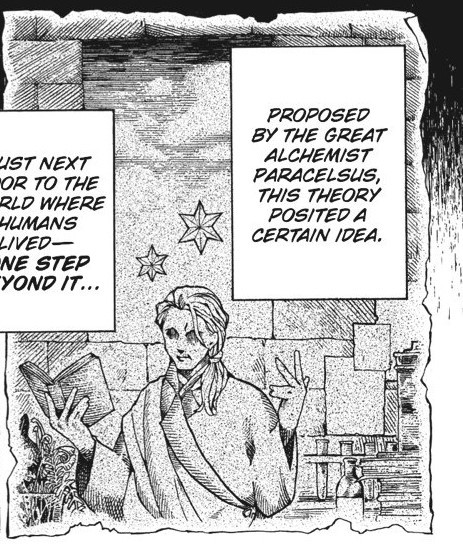
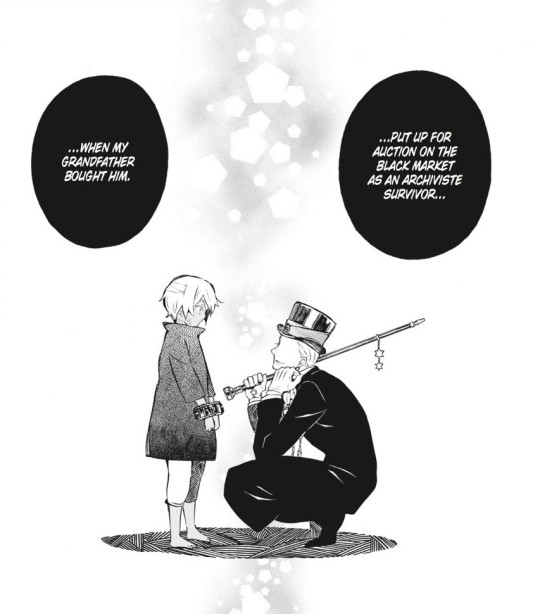
That panel of Teacher and Noé appears at the very end of chapter 6, and the Paracelsus panel appears at the start of chapter 7, meaning these images are quite conspicuously close together.
So what does this mean for Teacher's idea of "world peace"?
In the storybook version of Paracelsus's life, he's described as wanting to alter the world formula not for scientific curiosity, but because he wants to save the world.
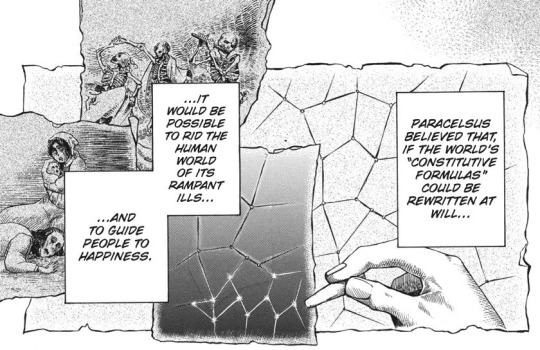
Paracelsus, per the childish version that Teacher presents to Noé, caused the Babel Incident because he was trying to "rid the world of its ills" and "guide people to happiness." The line about the human world's "rampant ills" is read over a drawing of dancing skeletons—a Danse Macabre. This is a Medieval way of drawing the personification of death, usually for the purpose of expressing the way that death comes comes for every person inevitably (the same theme later expressed by Vanitas art).
When Paracelsus speaks of the world's ills, this is the reality he seeks to cure. The world is afflicted with suffering and death, and he wants to rewrite the world's formula so that humanity can live happily without that pain.
A world rewritten to be without suffering—isn't that world peace? "World peace" is often used to evoke an end to armed conflict specifically, rather than suffering at large, but the concepts must overlap if they're pursued seriously. How can world peace last if there are people starving in famines or dying of disease? Suffering breeds violence. And how can someone seeking to alleviate "the world's ills" not want to achieve world peace?
If this is true, if Teacher's hope for "world peace" is him carrying on Paracelsus's legacy (or carrying on his own work, if they're the same man), then what does that mean for Paracelsus's supposed altruistic intentions?
We know little about Paracelsus now, only Teacher's recounting of the Babel Incident by way of a book he's reading to a child, but I think there are two ways to interpret what we do know.
Trying to rid the world of suffering is, on its face, the most noble possible intention. To lead the world to happiness is to attempt to help every other person in the world. And I can think of a lot of ways that Paracelsus's goals make absolute sense to me. If you discover that the fabric of reality can be rewritten, and you know that there are people in the world dying of famines, wouldn't you want to reshape the world so that they no longer have to go hungry?
It's possible, depending on what we find out about him in the future, that Paracelsus really will be a noble figure whose one great sin was hubris, and all he wanted from his research was to help the world in ways that make both moral and logical sense.
However, given some of VnC's other themes, I think there's another lens through which we should consider Paracelsus's actions. We don't know exactly what he was trying to rewrite with that disastrous experiment, but that Danse Macabre does give us one possible clue.
One of the themes that VnC has been slowly developing throughout its run is the idea that, though trying to save a person's life is noble, it is not noble to deny all death as a whole. This is a story about the concept of Vanitas, the idea that death is inevitable and that all else is rendered meaningless in its face. Noé feels like he failed Louis because he was unable to kill him when he asked, and it seems like the manga's being set up to end with Noé killing Vanitas to escape a fate Vanitas considers worse than death. One big part of what makes Mikhail so unsettling is his denial, his laughing about his mother's draining and the fact that he cannot accept the reality Luna has died, and Vanitas is horrified to hear that Misha is planning to resurrect their parent. That same issue goes on to be the one thing that finally drives a wedge between Noé and his teacher, as Noé can apparently forgive the man for purchasing him on the black market and killing Louis, but he's horrified to hear that Teacher told Mikhail that resurrecting Luna was possible.
All of these scenes have other elements to them, other things that drive the characters and inform why these specific ideas of undeath are so deeply horrifying to them, but the buildup of this running theme is an undercurrent through all of it. Vanitas means that someday all people must die, so what does it mean when somebody tries to deny that?
Even further, there's the broader horror of both Noé and Mikhail failing to process the bad things that happen to them. Misha commits blithe horrors in part because he does not understand that his sexual abuse was wrong, so he seems to see no problem with sexually assaulting others now in turn—as he does when he pressures Noé to drink his blood. Noé happily recounts being kidnapped and sold on the black market, remarks on Chloé and Jean-Jacques's goodness minutes after Chloé assaults him in his sleep, and brushes off the incident of Jean-Jacques drugging him to the extent that even Jean-Jacques himself is unnerved by it. All of that is deeply concerning behavior.
Misha is written to be obviously uncanny in his denial, and that uncanniness holds up a mirror to the subtler horror of Noé's own disconnects from reality. The more recent chapters have also begun drawing direct attention to the ways that Noé's denial of the bad in the world becomes problematic. The aforementioned scene of Vani, Dante, and JJ being disturbed by Noé's "it doesn't bother me" line does this, as does the long discussion Noé and Vanitas have about why Noé's ignorance of anti-Dham racism upsets Dante so much.
There is an ongoing tension in VnC between the inherent goodness of peace and life and the horror of what comes when those concepts are taken too far. Noé and Vanitas are this in a nutshell: an endlessly clashing duo made up of a too-extreme pessimist and a too-extreme optimist. The story arcs thus far have taken turns challenging each of their worldviews, slowly pushing Vanitas to open up and let himself hope for peaceful solutions, let himself accept love and emotional closeness, while also slowly pushing Noé to confront the fact that sometimes not everything has a happy-making peaceful solution after all. Sometimes "saving" a child means she has to die, and sometimes an enemy will have an entirely sympathetic reason to hate vampires, but Noé still has to fight them anyway to save the people he wants to save, regardless of whether that enemy is "right" or not.
Noé lives in denial of his own past traumas and his own present-day potential for harm. He denies the potential that "good" people he meets might harm him, and he struggles to accept instances where he has harmed others in turn. Dominique and Vanitas go on for pages after the amusement park about how reckless and overly trusting he can be, and he turns around, unable to cope, when confronted with the truth of what he did to Misha with his claws. However, Noé also has the benefit of his proximity to Vanitas knocking just a bit of sense into him, and it might not be a sure thing that he's going to stay in denial-land forever.
One of VnC's specific points of tension is the question of if/how Noé will grow to accept the hard things that currently bounce off his oblivious denial like water off of a raincoat. The end of mémoire 1, the statement that someday he's going to kill Vanitas, suggests that perhaps he might learn to understand how death, despite its pain, is important in its own right. It suggests that maybe he'll come around to no longer denying death and insisting that salvation is always its avoidance.
However, if he can't quite make that leap, the story provides us with dark mirrors to show us what a monster Noé could become by doubling down on his idealistic, optimistic denial. Misha's current state is Noé to an extreme, an innocent child committing horrors as he utterly fails to process the truth of his own horrific early childhood. Misha's driving motivation is a hatred of pain and suffering, and he's willing to do anything to resurrect the family that saved him from that pain in the past.
Then there's also Lord Ruthven, a man who was once an optimist in Noé's own mold, but has since broken bad in a spectacular way. Noé and Ruthven recite the exact same line about liking both humans and vampires, an obvious parallel, but now Ruthven is working with Naenia. Now he's living in the aftermath of his idealistic peace plan imploding and almost costing him his life. Ruthven despairs the last time he visits Gévaudan, lamenting the wrongness of his naive past hopes for understanding, and now he's working toward some unknown end involving Naenia, Charlatan, and the Queen. Now he's committing horrors of his own, biting at least three people by force, overriding their wills, and associating with the being that steals innocent people's true names.
There's also the question of what the hell Ruthven is doing with the queen. It seems he was somehow involved with Faustina devolving to her current state, and Loki references "smashing up her corpse," so it's possible Naenia's existence may be a sign that Ruthven wants or wanted her dead and/or cursed. However, the shots of him with the Faustina-like body in the tank at the end of mémoire 18 suggest there's a chance that he could instead be involved with some form of resurrection scheme (or a scheme to preserve/save her if she's not yet fully dead).
Ruthven exists in part to demonstrate the ways that an idealist like Noé can go bad, and it's possible that he, like Misha, is attempting some sort of awful resurrection, once again denying the reality of death.
Then, finally, there's one more character with whom Noé has these sorts of obvious parallels. The man who, perhaps, is also meant to represent what Noé could become if the dangerous sides of his optimism aren't reigned in: his teacher.
Noé is fascinated by Vanitas, drawn to him out of care and connection, but also because he wants to observe and understand him to sate his curiosity. In a darker mirror of the same trend, we see Noé's teacher allow Louis, Noé, Domi, and Misha to come to harm at least in part for the simple enjoyment of seeing how they react when placed in dark new situations. Noé and his teacher are also the only crimson vampires we know of who find the Blue Moon beautiful and alluring, rather than a source of fear (assuming that Teacher is a normal crimson vampire).
Noé was raised by this man; his worldview has been shaped by him in countless ways big and small. Noé was already living in cheerful rejection of trauma before The Shapeless One found him, but he could not have remained so radically detached from the painful parts of the world around him if his teacher had not wanted and allowed him to do so. He censored Lord Ruthven out of Noé's education, and he apparently did the same with anything that discussed (or expressed) severe bigotry toward Dhampirs. How else did Teacher shape him, and to what goal?
We know that the Shapeless One taught Noé how to fight. Given that "world peace" line, I wonder if perhaps he may also have taught him his morals on wanting to avoid conflict.
Teacher is a contradiction. He talks about "world peace," but he blithely leads Louis to his doom and supposedly doesn't hesitate to half-kill anyone who calls him by the wrong name. Marquis Machina calls him an incomprehensible natural disaster for this reason. Yet, despite all his rampant cruelty, I'm beginning to think that he might be just as much of a dangerous optimist as his student.
Teacher is defined by the fact that, in every scene, he always seems to look like he's having fun. There's hardly been a single panel where he's not drawn smiling. Sometimes that fun is vicious, a cruel smile made as a threat to Vanitas when he fails to address him by his name, but just as often, his aura seems horrifically innocent. He's just a man with a sweet smile and rather dull eyes having a very good time with life.
In the past I've largely looked at this smile as an extension of Teacher's sadism. He toys with Louis and Noé for the fun of it, and I took his smile as an expression of his cruel enjoyment of the pain he creates in his wake. However, now that we've seen him interact with Machina, now that we've observed him speaking casually with a peer for an extended period, there seems to be a disturbingly sincere quality to him as well.

Based on how he's portrayed in mémoire 61, when Teacher says he does everything he does for the sake of "world peace," I honestly think I believe him. I don't believe that he's not a villain—I can't guarantee that his vision of "world peace" would even align with a normal person's definition of "peace" or "happiness," but I believe that he's speaking some version of honestly here.
There's an honest to goodness optimism in that ever-present smile. There's a hope and a genuine quality to what he announces to Machina, in contrast to his smiles of sweetly cruel schadenfreude.
So perhaps, if all that is true, if Teacher is another dark mirror to Noé and he really does want to bring about world peace, then the point of him is that "world peace" has the potential to be a horror. What is the pursuit of world peace if not the ultimate pipe dream of every idealist in the mold of Noé and Ruthven? And what is VnC if not a long catalog of the horrors that idealists can bring about if they aren't careful?
And that, finally, brings me back to Paracelsus and the Danse Macabre.
Depending on what Paracelsus wanted to achieve through his experiments, it's possible he may have been yet another character trying to escape the harsh reality of death. The line about the world's "rampant ills" is placed over the Danse Macabre, after all—a symbol of death's universal inevitability. Is that the painful ill that Paracelsus wanted to address by rewriting the world formula? Inescapable death itself?
If so, Paracelsus becomes the ultimate embodiment of what happens when one denies death's certainty and the necessity of that certainty. He's the ultimate denial of "Vanitas" and what it represents on a scale far larger than Noé, Misha, or even Ruthven could grasp. And the manga casts his failed experiment as a Tower of Babel, throwing the world into chaos and causing countless deaths in his failure's wake.
Meanwhile, Teacher seems to have some ideas about how to cheat death in the present day, as he's promised Misha that there's a way to bring "The Vampire of the Blue Moon" back to life. This could be a lie, of course, or he could be planning to bring back "the vampire of the blue moon" in a way that does not actually bring back Luna as an individual. However, even trying to bring back the Blue Moon in some other way, perhaps through the human Vanitas, still represents him trying to restore something he found beautiful that was lost because of death. It still ties him thematically to the perversion of death as an ending, the same as Mikhail and Ruthven.
So far every character we've seen that wants to undo death is cast as an antagonist. Ruthven, Mikhail, and The Shapeless One are all united by a cruelty and a perverseness in various forms, and their goal is part of this. Death is a tragedy, but although trying to save the lives of people who want to live is noble, attempting to undo or eternally escape death is a far worse horror.
If Teacher is Paracelsus, or if they're closely connected in some other way, then that serves to further this point and show how the horror of escaping death extends to Paracelsus as it does the others. Teacher is strange and cruel. Paracelsus might be a nobly hubristic historical fool in a storybook, but if these two characters are connected, that instantly reveals the unsettling truth of how wrong Paracelsus's potential attempt to thwart death would have been. Nothing Teacher is working for can be wholly good.
And, just as Noé and Misha's denial is both present and harmful beyond the most severe subject of death, even if Paracelsus wasn't trying to craft a world without death by altering the world formula, we know he was trying to create a world without suffering. Again, this is a noble goal in theory, but so long as death remains, some suffering will remain as well. Crafting a world without pain and suffering can also go much too far, can slip into denial and cruelty. Mikhail's whole motivation as an antagonist is his search for a life without pain, and look where that's led him.
A rejection of all suffering can be an extremely dangerous thing, whether it's running from one's own mental pain or wanting to rewrite the world to negate all suffering as a whole. This dream will never not be a detachment from reality.
The Case Study of Vanitas is a series that seems to be searching for a balance of optimism and pessimism, a way to approach the harsh realities of life that lies between the toxic extremes embodied by Vanitas and Noé. To lapse too far into hopeless pessimism creates a Vanitas, a Chloé, an Astolfo. It creates people who are suicidal, genocidal, or both, and dangerous to themselves and others for it. However, to go through life in a state of eternal joy without processing one's pain, or to attempt to create a world wholly free of suffering—that is just as dangerous and foolish. What are Noé, Misha, and Ruthven if not dangers to themselves and others? What is Teacher if not the most dangerous man in this manga?
Noé and Misha are unsettling because they smile through the bad things that happen to them and act as though they aren't bad. They each have some exceptions to this rule—Louis's death for Noé and the pain suffered at the hands of Moreau for Misha—but they still come across as at times disconnected from the reality of pain.
Yet, neither of them is as disconnected from the reality of pain as a man that can behead the grandson he raised with a smile on his face. Noé as a child sees the fun in being kidnapped and put up for auction. Teacher, if his smile is to be believed, sees the fun in every single thing we've seen him do, and that's what's so unsettling about him. He genuinely seems to be having a good time, including and especially when he's blithely committing horrors for the fun of it.
Noé and Misha's strange behavior stems from trauma, and we don't know that's the case for Teacher. Perhaps not, as he seems much colder and crueler in his tendencies than either of them. But either way, the happy sincerity displayed by both of them is echoed in the face of the Count of Saint Germain as he tells Machina that he's searching for world peace. That is the face of someone idealistic, someone who believes he's working toward a real goal that both justifies and delights him.
Teacher wants world peace, and his warped nature means that we have no real idea what "world peace" means to him. Is a world at peace a world where he still gets to violently beat people who get his name wrong? A world where he still gets to have fun observing the free will and choices of the traumatized children he raises? Maybe he once believed in a world that was truly without suffering, and his overly-long life and mad optimism have eroded his tether to reality, turning him into the awful person we see now. Maybe the catastrophe of the Babel incident broke him and turned him from a hubristic idealist to warped echo of his former self. Maybe he somehow thinks all the suffering he causes is justified if it's in pursuit of his noble end goal. Maybe his version of "world peace" is a world where all people can live free from the fear of death, and the smaller pains caused along the way are irrelevant in the face of that impossible dream.
Or maybe he's just a cruel hypocrite.
In the end, we still know too little about both Paracelsus and Teacher to make any grand proclamations about the truth of their characters. However, I can't unsee this connection between them now that I've seen it. Teacher is one of Noé's dark mirrors, a character that represents the horrors possible when one goes too far down his current emotional path. Noé is optimistic to a fault, convincing himself to see only the best in many truly awful scenarios, and Teacher is the man with an eternal smile printed on his face. Noé loves and wants to save Vanitas, and Teacher speaks of the Blue Moon's ultimate beauty and says he has a way to bring them back to life now that they're dead. Noé is the eternal savior, always desperate to prevent people from dying, and Teacher claims that everything he does is done in the name of achieving world peace.
Similarly, Paracelsus is defined by throwing the world into chaos and horror due to his over-optimism. He tried to go too far, tried to rid humanity of its countless ills and create his own form of world peace, perhaps even tried to rewrite the reality of death. Did he hate pain and cold like Misha? Did he want to stop unjust wars like Ruthven? Did he want to become a savior in the image of Noah?
If Teacher's goal of "world peace" is to be believed, then whether or not Teacher and Paracelsus are actually the same person, they represent the same thematic extreme. Death is inevitable, says the concept of Vanitas. It's inevitable and Noé must learn to accept that fact before he does something awful in the name of pain and death's prevention. Teacher and Paracelsus have both done something(s) awful in the name of pain and death's prevention. Teacher and Paracelsus have followed Noé's path of optimism to such an extent that they, in one way or another, both claim(ed) to want to save the world, and this requires a mad extreme of Noé-like cognitive dissonance and hubris.
Paracelsus pursued some goal, some way of granting humanity happiness that was supposedly noble but still murky in its specifics, and he warped the fabric of reality and caused the countless disasters of the Babel Incident in the process. And that's assuming the storybook is true, and Babel really was accidental on his part. Meanwhile Teacher has warped the seemingly noble dream of world peace into something that he can claim is served by the way he's tormented Louis, Misha, and Noé. There's a chance that both men tried or are trying to undo the reality of death. They're bound by the same underlying current of scientific curiosity intermingled with their dreams of world peace.
Noé is not an alchemist, and he's not particularly skilled at rewriting the world formula. He's unlikely to have any chance to rewrite the fabric of reality itself for the better. He's unlikely to have any chance to achieve "world peace" by any definition.
Noé is, however, a dangerous optimist who has not yet learned that death is unavoidable. He hasn't yet learned that death can be preferred to its alternatives. And he was raised by a man who seems like he has not learned or does not care that disrupting Death in the grand sense will inevitably lead to horror. Or perhaps a man who enjoys horrors and wants to toy with absolute death as a part of that. And all this in a world warped and defined by the folly of a man who may also not have understood the horror of evading death.
So Teacher might be Paracelsus. I think this connection between them only strengthens the odds of that theory being true. But even if he isn't, they represent a similar thing for Noé and for the manga's themes at large. You cannot rid the world of the Danse Macabre, and attempting to end that dance will only bring greater ills and greater pain than death on its own could ever hope to bring.
A strange and dangerous man proclaiming with an honest smile that he wants to bring about world peace does not make him any less strange or dangerous. Depending on his definition of world peace and his idea of death's place in it, that idealistic goal may actually make him far more dangerous than if he were nothing more than a simple sadist.
#I've talked at length about some of these ideas in other posts before#but putting this together felt like finally being able to marry a few different major themes I've written about#that have stayed largely disparate up to this point#also huge shoutout to the several other theorists I've seen point out the thing with teacher and paracelsus and the stars#that's such a cool detail#ANYWAY this is more of a reach than what I'd usually stake a whole meta essay on. but I feel like my thematic foundations are sound#vnc#vanitas no carte#the case study of vanitas#teacher#vnc teacher#the shapeless one#comte de saint germain#vnc paracelsus#teacher my beloathed#noé archiviste#theory#english major hours#vnc spoilers
108 notes
·
View notes
Text
IkeVamp chars reacting to someone harassing you
A/N = stepping into the waters of ikevamp
Napolean Bonaparte
Napoleon would look the harasser up and down, then his voice goes on to lecture the harasser.
"Leave now, or I’ll make you wish you had." He says, his gaze sharpening and a hint of his military background flashing in his eyes. "This will not end well for you if you continue."
If the harasser doesn't take him seriously, Napoleon's not gonna be as nice as before. "You’re testing the wrong person. Do you really want to deal with the full weight of my wrath?"
Wolfgang Amadeus Mozart
Mozart would dramatically throw his hands up in exasperation, his tone playful yet scathing.
"Oh, how clever of you to harass someone who’s so clearly out of your league! Tell me, is this your best performance?" He'd laugh mockingly.
If the harasser doesn't back off, Mozart would quip, "You’ve already missed your chance to impress me, darling. Best leave before you make a fool of yourself."
Leonardo da Vinci
With a calm and inquisitive expression, Leonardo would step forward, his tone collected but firm.
"I find it curious that someone of your... intellect would waste time with such unseemly actions." His voice is steady, as though speaking to an inferior subject.
He’d pause, eyes narrowing, "I suggest you reconsider your actions. People of my stature do not tolerate such behavior. And I’m sure you’re aware of the consequences."
Arthur Conan Doyle
Arthur would straighten up, giving the harasser a cold, analytical look. "Really? This is your idea of making a lasting impression?"
He’d then address the harasser directly, his voice cutting through the tension. "If you think for a moment that you’re in control here, you’ve gravely underestimated both of us."
"You may want to rethink this, as I’m certain your motives could be better directed elsewhere," he adds, a calm threat hiding beneath his words.
Vincent van Gogh
Vincent’s normally calm demeanor would crack, his voice trembling with emotion. "You have no right... no right to treat them this way!"
He steps in front of the reader, glaring at the harasser. "You don’t know who you’re messing with, do you? I won't stand for it!"
As the tension builds, Vincent’s face hardens, "Leave them alone, now. I’ll make sure you regret it if you don’t."
Theodore
Theodore would step in between you and the harasser, his voice calm but stern as he calls out the harasser. "This is not the way to behave, and you know it."
He’d give the harasser a chance to back down. "I’d advise you to walk away, before I’m forced to make you understand how serious I am."
If needed, he’d become more forceful: "I am not one for drama, but I will not let you make this a problem."
Osamu Dazai
Dazai’s initial response would be a smirk, his tone sarcastic. "Oh, how bold of you. You really think you can harass them without consequences?"
He’d lean in slightly, his smile darkening. "You’re funny. But not in a good way."
If things escalate, Dazai’s tone would shift, becoming chilling. "You’ve just made a very bad decision. One I won’t be forgetting anytime soon."
Isaac Newton
Isaac would raise an eyebrow, voice level and logical. "I’m afraid your actions are... quite irrational."
He would calmly explain, "Such behavior is not only disrespectful but also entirely unnecessary. You should consider the consequences of your actions before they escalate further."
"I believe I’ve made myself clear," Isaac would finish, his voice stern with an undercurrent of intellectual superiority.
Jean d'Arc
Jean would stand tall, his voice unwavering as he faces the harasser. "You dare approach them in such a manner?"
He’d take a step forward, eyes burning with determination. "You will not continue this harassment. I will protect them, no matter what it takes."
"This is your last warning," he would say with a commanding tone, "Leave now, before you regret it."
William Shakespeare
With a wry smile, Shakespeare would deliver his retort in a theatrical flourish. "Thou art a fool, sir. A poor, unfortunate fool!"
His voice is laced with irony. "Do you not see the folly in your actions? I’d advise you to take your leave while there is still time for you to save face."
"For you shall not win this battle of wits," Shakespeare would say, his tone dripping with mockery, "And in this exchange, you are the one who loses."
Comte de Saint-Germain
Saint-Germain would speak in a low, controlled voice, his aristocratic tone giving him an air of superiority. "I am not one for unpleasantness, but you’ve given me no choice."
He would tilt his head, an elegant smirk on his lips. "You will leave, now. I assure you, it’s in your best interest."
If the harassment doesn’t stop, Comte's smile would turn cold. "You clearly don’t know who you’re dealing with. I suggest you correct that mistake—before I do it for you."
Sebastian
Sebastian’s tone would be smooth and polite, though there’s a dangerous edge to it. "Excuse me, sir, but I believe you’ve mistaken this person’s boundaries."
He would take a step closer, voice still calm but now carrying an unmistakable threat. "I’m sure you’ll find your behavior unwise in the end."
If the harasser continues, Sebastian would smile coldly. "I won’t repeat myself, but I do expect you to leave—immediately."
#ikemen vampire#ikevamp#ikevamp x reader#napoleon bonaparte x reader#mozart x reader#leonardo da vinci x reader#arthur conan doyle x reader#vincent van gogh x reader#theodore x reader#osamu dazai x reader#isaac newton x reader#jean d'arc x reader#william shakespeare x reader#sebastian x reader#comte de saint germain x reader
96 notes
·
View notes
Text
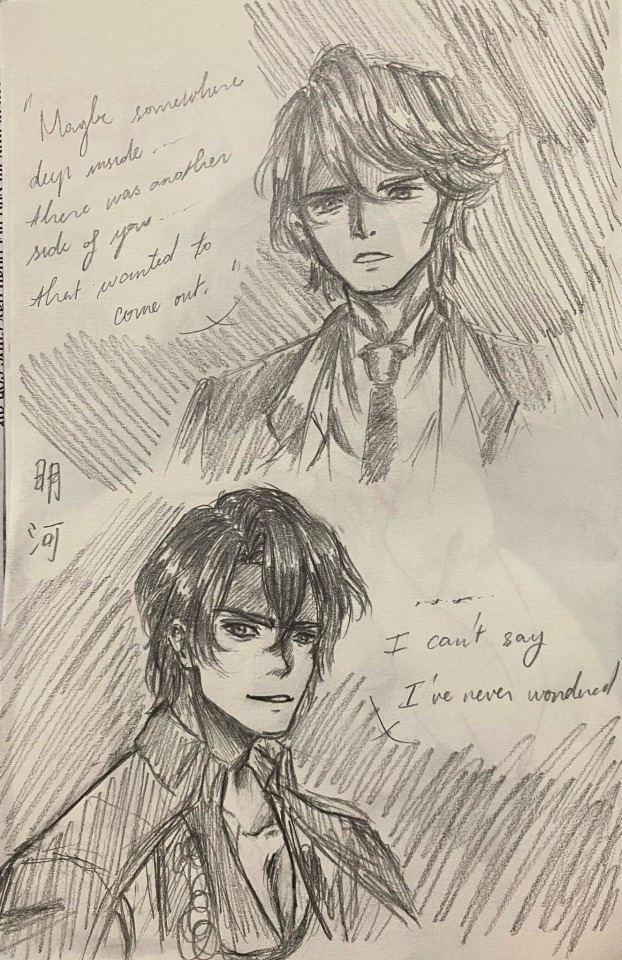
A sketch of a scene from the ikevamp stage story sale :)


They said a lot more in between but I had to cut down bc space 💖
Honestly spent wayy too much on the story sale but thats ok bc the story was worth it! They rlly showcased more characterization and since Leo is my fav, I rlly cherish more content on his character 💖
Kinda f--ed up leo's face shape tho ;-;
#ikemen leonardo#ikemen vampire#ikemen vampire leonardo#ikemen vampire leonardo da vinci#ikevam leonardo#ikevamp leonardo#ikevamp comte#ikemen vampire comte#comte de saint germain#ikevamp event
66 notes
·
View notes
Text
We still travel through time, but in a different universe 😆
亞伯 (Abel) and 李奧納多 (Leonardo)

#cybird ikemen#otome game#cybird#ikevamp#fanart#ikemen vampire#ikemen leonardo#leonardodavinci#ikemen comte#le comte de saint germain#anadreamart#ana thedaydreamer
431 notes
·
View notes
Text
random comte headcanons
he likes it when you're the one who initiates physical affection like hugs, hand holding and kisses. it makes him melt like icecream on a hot day, it turns him into a giddy teenager experiencing love all over again.
he won't ever admit it but comte enjoys it when you play with his hair. lightly scratching his scalp with your dull nails and massaging the area behind his ears, it makes him sleepy.
comte thinks that your eyes are the most captivating thing about you, they show so many emotions! and your eyelashes, the way they frame your eyes so perfectly- which is why you'll always find him giving your eyelids a peck every now and then.
whenever he sees you wear his gifts, he feels joy. because that means you liked it enough. sure, comte might love showering you with gifts, that's just a habit he has acquired over the years and it's his way of showing love. but nothing tops when you actually put his gifts to use.
comte is the type of person who will always have cookies and biscuits on the side while he drinks tea.
he wears glasses while reading newspaper, even though he has perfect vision. comte just wants to feel a bit human, besides, you always compliment him when he wears those glasses.
#tani writes!!#ikevamp#ikemen vampire#ikevamp comte#comte de saint germain#ikemen vampire comte#ikevamp comte x reader#ikevamp headcanons#comte x reader
241 notes
·
View notes
Text
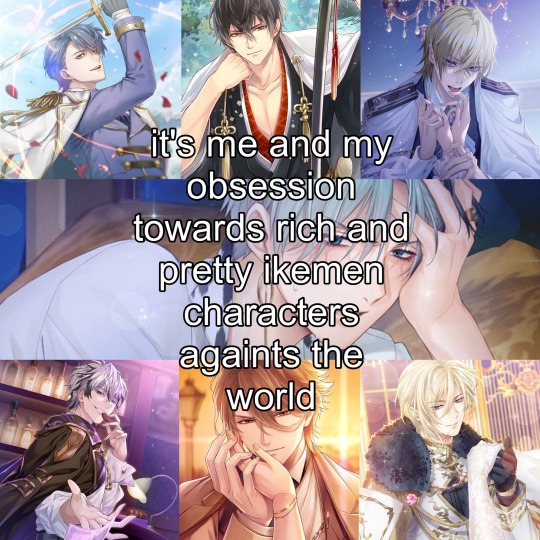
So many more characters could be on here
#cybird ikemen#ikemen prince#ikepri#ikemen villains#ikemen villians#ikevil#Ikemen vampire#Ikemen sengoku#silvio ricci#ikemen prince silvio#chevalier michel#ikemen prince chevalier#clavis lelouch#ikemen prince clavis#jude jazza#ikemen villains jude#elbert greetia#ikemen villains elbert#ikevil elbert#comte de saint germain#ikemen vampire comte#ikemen sengoku nobunaga#ikemen memes#ikemen villains memes#ikemen vampire memes#ikemen prince memes#Ikemen sengoku memes#ikevil memes#Ikepri memes#ikevamp memes
294 notes
·
View notes
Text
Eh fuck it.
Happy Birthday, Daddy ✨🥰



#ikemen series#cybird#cybird ikemen#ikemen vampire#ikevamp#le comte de saint germain#ikemen comte#ikevamp comte#ikemen vampire comte
57 notes
·
View notes
Text
[Monthly banquet]
Dazai: Synonyms are weird because if you invite someone to your cottage in the forest, that just sounds nice and cozy, but if I invite you to my cabin in the woods, you're going to die.
Arthur: My favorite is explaining the difference between a booty call and a butt dial.
Shakespeare: It's called connotations.
Arthur: *nodding* How about this one...
Arthur: Forgive me, father, for I have sinned.
Arthur: *looks towards Comte, smirking* Sorry, Daddy, I've been naughty.
Comte: *sighs* All language has now been banned from the dinner table.
#ikemen vampire#ikevamp#ikevamp dazai#ikevamp osamu dazai#ikevamp shakespeare#ikevamp arthur#ikevamp arthur conan doyle#ikevamp comte#ikevamp comte de saint germain#ikevamp incorrect quotes
262 notes
·
View notes
Text
Master Post

Le Comte's Mansion is filled with once famous men who are now vampires. He is the caretaker and the enforcer of the rules. Please show him adequate respect if you choose to roleplay here.
Note: Mod does not speak French.
Asks: Open
1. Be respectful.
2. Be Kind
any content not viewed as such will be deleted.
3. Yes you may ask for answers from other residents.
WARNING: the residents often intercept each other's mail so you might not get the answer you seek. (Only Le Comte's residents will answer, however.)
The exception to this, of course, is Le Comte's mail. No one would dare intercept a message meant for him.
4. NSFW and SFW are allowed. Minors please do not interact with this account.
Please discuss NSFW asks with admin. My muses prefer to get to know their partners prior to such scenes.
5. Introducing your muses is encouraged.
6. Visiting Vampires are welcome. We support interactions with other ask blogs and encourage roleplays. (We like shipping vampires. Join in if you'd like?)
Some ships in this post:
7. Each interaction is treated like its own storyline or alternate universe. Please respect the other accounts that we interact with. We are here to write and have fun. Tagging is acceptable.
We do prefer to stay within the Ikemen Vampire Universe, however.
#ikemen vampire#le comte#le comte de saint germain#saint germain#ikevamp#ikevam#ask blog#roleplay#napoleon#mozart#dazai#arthur#isaac#theodorus#theo#vincent#sebastian
42 notes
·
View notes
Text


Kinktober 2024 Masterlist
Prompt List
Unless otherwise stated, all suitors are Comte de Saint-Germain.
1. Bondage | Role Reversal - Day 1: Eternal Bonds 2. Pussy/Cock Worship | Roleplay - Day 2: Poker Face 3. Face Sitting | Intercrural Sex - Day 3: Take a Seat 4. Food Play | Biting / Marking - Day 4: Eternity 5. Pussy/Cockdrunk | Double Penetration - Day 5: Double Trouble 6. Voice Kink | Discipline/Punishment - Day 6: Voulez-Vous [...] 7. Size Kink | Blood Play - Day 7: Dinner Time 8. Temperature Play | Rough Sex - Day 8: Morning Teatime 9. Impact Play | Guided Masturbation - Day 9: Hot For Teacher 10. Cockwarming | Face Fucking - Day 10: A Lesson in Patience 11. Mirror Sex | Oral - Day 11: Reflections in the Waves (of Pleasure) 12. Voyeurism/Exhibitionism | Edging - Day 12: Love's Labour's Lost 13. Dirty Talk | Dacryphilia 14. Overstimulation | Toys 15. Predator/Prey | Degradation 16. Pegging/Anal | First Time 17. Breeding | Orgasm Denial 18. Praise Kink | A/B/O 19. Petplay | Blindfold 20. Body Worship | Daddy/Mommy Kink 21. Begging | Sensation Play 22. Mutual Masturbation | Hate/Angry Sex 23. Polyamory | Spitroasting 24. Somnophilia | Against the Wall 25. Non-Genital Orgasm | Multiple Orgasms 26. Outdoors / Public | Breath Play 27. Lingerie | Teasing - Day 27: The Gift That Just Keeps On Giving 28. Wax Play | Foreplay 29. Shower/Bath | Gagging 30. Jealous Sex | Window/Balcony 31. Free Day!

Dividers by @natimiles
#ikevamp#ikevamp comte#ikemen vampire#ikemen vampire comte#mdni#ikevamp smut#ikemen vampire smut#comte de saint germain#ikemen series#masterlist#cybird ikemen
86 notes
·
View notes
Text
A stressful ass week at work. Then I get an ikevamp event with Comte in it and in the epilog I am rewarded with THIS!

#my reward#for my hard work#dreamy sigh#overies exploding#ikevamp#ikevamp comte#ikemen vampire#comte de saint germain
39 notes
·
View notes